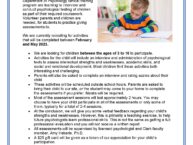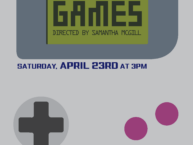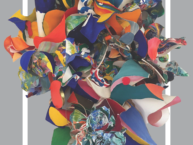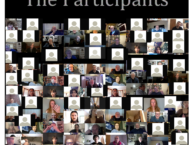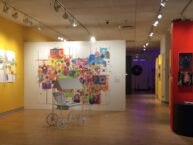 This year the International Students Associations’ International Journey Food Fair went green and oh, did they go green! The Food Fair gives Clark students an opportunity to sample traditional dishes from all over the world, prepared by Clarkies themselves. The Food Fair was a great success with over 300 attendees, a wide variety of food to sample, and a beautifully decorated space. The event was also successfully green because of one big factor: the students of ISA made it a Zero Waste event!
This year the International Students Associations’ International Journey Food Fair went green and oh, did they go green! The Food Fair gives Clark students an opportunity to sample traditional dishes from all over the world, prepared by Clarkies themselves. The Food Fair was a great success with over 300 attendees, a wide variety of food to sample, and a beautifully decorated space. The event was also successfully green because of one big factor: the students of ISA made it a Zero Waste event!
At last year’s Food Fair I was overwhelmed by the amount of waste. Piles of plates, cups, cutlery and napkins in a central location actually encouraged people to eat a sample of something, throw away their plate and fork, and then get a new plate to try more food (hey – all those plates and cups cost the club money too!). Garbage bins were overflowing with things that could easily be recycled or composted; recycling bins were few. This year I decided to do something to change that. As Sustainable Clark’s Graduate Assistant, I used the Zero Waste resources that Sustainable Clark provides on-line to research the possibility. When I ran my idea to green International Journey’s Food Fair past Aksheya Sridhar, President of ISA and a good friend, she was very enthusiastic and committed ISA to making the event Zero Waste!
Making an event Zero Waste is super easy and begins with event planning: buy only materials that can be composted or recycled and avoid materials that have to be sent to landfill (such as Styrofoam and saran wrap). If people are bringing food, you have to let them know about their part in making the event Zero Waste so they bring food in reusable or recyclable containers. Strategically locating enough recycling and compost bins at the event is the next step, with landfill bins hidden or absent. Using the Zero Waste Event Guidelines from Sustainable Clark’s website, we also planned to limit the plates, cutlery, cups, and napkins to one per person, since Reduce & Reuse comes before recycle and it would drastically cut costs. At the entrance to Food Fair, large signs declared “Welcome to a Zero Waste Event” while ISA volunteers engaged guests in Zero Waste at a table set up to provide all guests with a single set of supplies for eating samples they could reuse over and over. Inside there were three central stations with large bins for recycling and compost, and a very small landfill bin. I trained ISA volunteers Yukio, Fileona Dkhar, and Cami Ferreol, all Class of ’17, on how to help guests choose compost or recycling at the stations. (Handy lists are also available on the Sustainable Clark website). I was pleasantly surprised to discover that Clarkies generally have an intuition to compost and recycle before throwing things in a landfill bin! The second part of making an event Zero Waste is measuring. ISA borrowed a bathroom scale that the Eco Reps use in waste audits. When the bins were full we would pull out the full bag and weigh and label it, and then replace it with a clean bag. The volunteers did a great job monitoring the bins, teaching the guests, and communicating with me and each other, and it turned out to be less work than I originally thought it would be. At the end of Food Fair we took the bags of compost down to the compost compactor on the UC loading dock. We left the recycling for the recycling crew to collect. International Journey’s Zero Waste event went very smoothly thanks to all who helped!
From planning to execution, participation and initiative, the ISA diverted a total of 78.1 pounds from landfill, and contributed 48.1 pounds of compost, and 30 pounds of recyclables. There was 4 pounds of landfill, which resulted from some Styrofoam plates from the info desk and possibly from materials being mistakenly disposed in the landfill bins. OK, so maybe it was ‘near zero’ – but compared to last year, what a difference! Zero Waste events are easier in the University Center (UC), because the compost compactor is in the UC, although we still could have done it elsewhere on campus just by bringing the compost to the UC. ISA took initiative in reducing waste by limiting materials for eating, which had a huge impact on reducing the waste generated from the over 300 guests and ISA members that attended. President Aksheya Sridhar was pleased with the outcome of the Zero Waste initiative, and had a lot to say about its success:
“I think that implementing Zero Waste guidelines at International Journey was very successful. What surprised me the most was how easy it was to have a Zero Waste event considering how much food, how many plates, etc. would be at this event. However, with just a bit of planning and knowing NOT to buy things like Styrofoam and saran wrap, it was very simple for us to do this. The only challenge we had was when we ran out of the plates we had bought and had to borrow some extra ones from the info desk that were Styrofoam. Overall, I thought it was very easy to make this event Zero Waste and is definitely something we can continue to do for this specific event, and hopefully for other ISA events in the future.”
I was also very satisfied with the outcome of the zero waste event, and grateful for ISA’s commitment to making such a large event more sustainable. It was a great experience to collaborate with ISA and figure out how all of the pieces would come together, and in the end it was reassuring that the initiative was successful and supported by those who attended. I look forward to working more with ISA and other student groups to reduce waste at events, and continue to make Clark more sustainable.
If you have any questions or would like more information about this event or how to make events zero-waste, please contact me (Rachel Sorenson) at sustainableclarkga@clarku.edu, or Jenny Isler at jisler@clarku.edu. If you would like to learn more about making an event Zero Waste, here are the guidelines: http://www.clarku.edu/offices/campussustainability/recycling/zerowasteeventguidelines.cfm. For more information on sustainability please visit Sustainable Clark’s website at http://www.clarku.edu/offices/campussustainability/.
